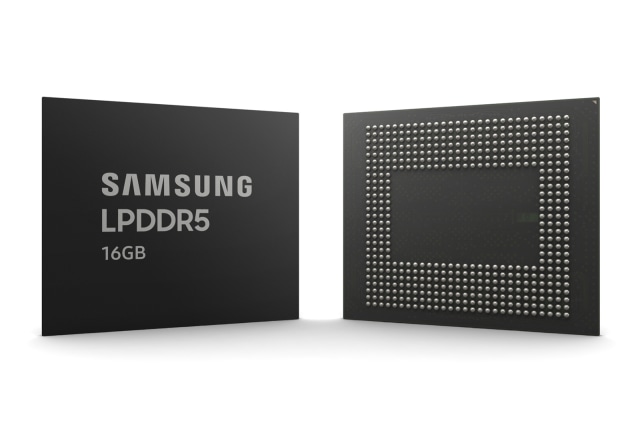
Samsung has made quite a bit of progress on memory chips. The (south) Korean tech giant has officially started mass production of 16-gigabit LPDDR5 mobile RAM. These chips can hold 2 Gigabytes of memory each and are the first ever memory chips to be manufactured using EUL (Extreme Ultraviolet Lithography). EUL uses lasers, rather than a lamp, to etch designs into silicon. This not only gives Samsung an edge over rivals, but it also overcomes a ‘major developmental hurdle’ that made scaling RAM production rather difficult.
These 2GB modules not only provide more storage space, but speed has gone up as well. Each chip is capable of 800MB/sec transfer rates which is about 16% more than Samsung’s last generation of memory chips. These new chips are able to provide these benefits while being about 30 percent thinner than their predecessors. This could lead to thinner phones, but it will more than likely just give manufactures more space for things like cameras and batteries.
Samsung is wanting to sell these new memory chips to flagship-class smartphone manufactures, which are their competitors. There is a high likelihood that your next phone will have significantly more performance while being better in handling demanding tasks and more apps simultaneously. Samsung also will be bringing the new LPDDR5 chips to automotive systems. So, if your next vehicle has a more powerful infotainment system, this may be why.

